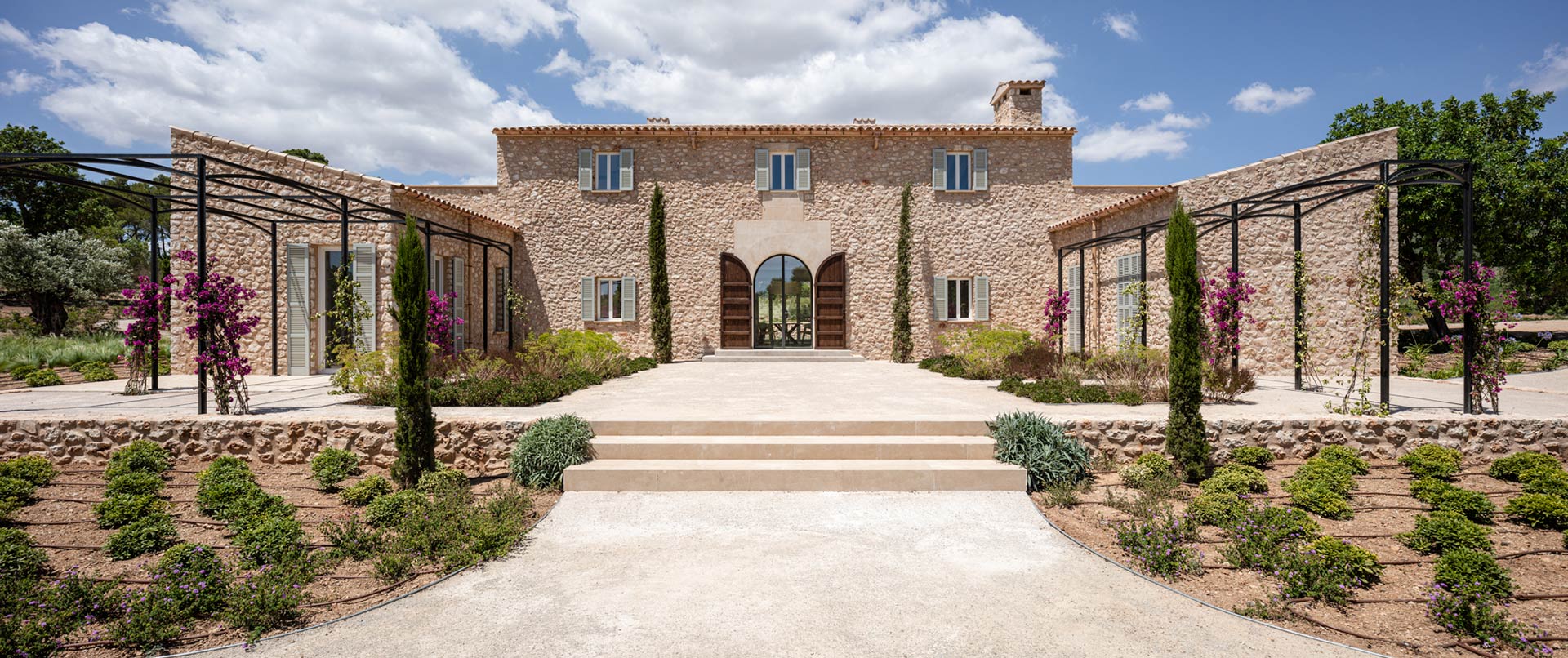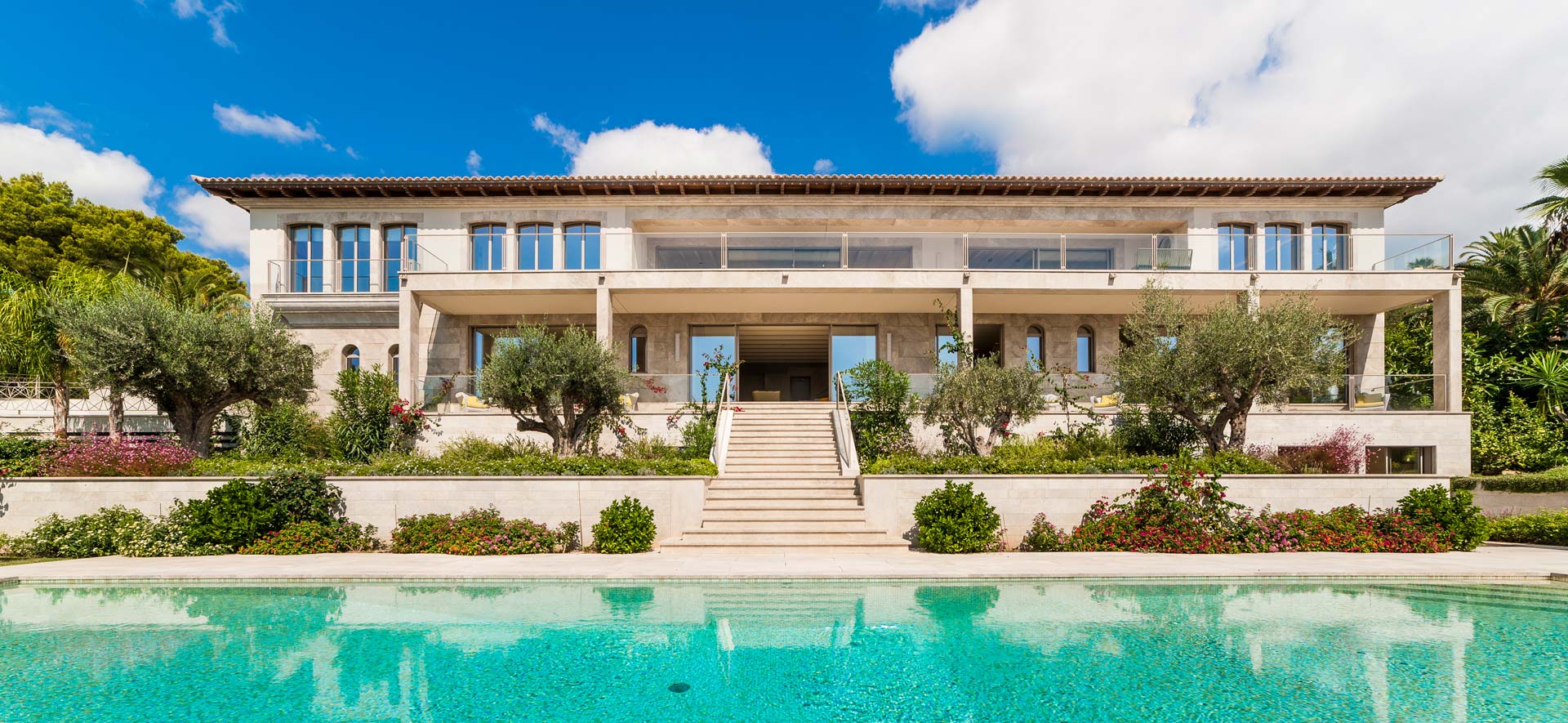One of the hallmarks of our studio is that we seek modernity and exclusivity in the homes of the past through the use of natural materials, functional designs and cutting-edge technology.
1Luxury according to Icazar.
From our headquarters in Palma, we design our clients' new homes, rather than as habitable places, as incredibly welcoming experiences with a level of sophistication that is difficult to achieve, and all of this wrapped in a very particular halo of luxury.
We define this luxury as the possibility of sharing the afternoon light with family and friends while the sun approaches the sea; as being able to sit down to breakfast in a gazebo surrounded by holm oaks, olive trees and bougainvillea while your bare feet rest on a floor of aged stone; and as being able to read a good book and drink the best wine in front of the fireplace while the shadows of the trees in the garden can be glimpsed through the window.
For us, luxury also means enjoying the landscape of Mallorca and being part of it. We believe that exclusivity is not something tangible but something that you feel, live and experience.
This luxury is what we design and build from our studio located in the old town of Palma.
2Ando Schirmer and the origin of Icazar.
The founder of our studio is Ando Schirmer, a German businessman who came to Mallorca after working on several continents. For Ando "I have always found Mallorca to be a fascinating place because tradition and avant-garde coexist in complete harmony. This melting pot transmits a special energy that, due to the circumstances of being an island, develops independently of how it would on the mainland. My main objective was to create a team of creatives who could bring this essence to the architectural projects they would carry out in the office".
"That's why at Icazar we shun solemnity and seriousness. We understand the place, we reinterpret the Mediterranean tradition and the natural environment based on two concepts: design and functionality. We are always looking for traditional products that, due to their individual handcrafted process, have certain singularities. We believe that they convey a positive spirit of life and longevity. We do not want an environment to age and the materials do not. A good example is artificial stone tiles. They are perfect and never age, but they don't convey anything," says Ando.
3The identity of our projects.

At Icazar we have two lines of work, rustic and urban. The first is based on traditional Mallorcan or Mediterranean architecture and the second updates this tradition with a more modern architectural language.
We do not see the houses we design as luxurious fashionable mansions, but as homes with a Mediterranean soul. We do not believe in the asepsis of misunderstood modernity. We believe in the links with the environment, with the inhabitants of the house, with the materiality and scale of the spaces. We conceive of the house as a space for connection and enjoyment and that is why our spaces breathe with the humans who inhabit them. More than a home, they are an embrace.
That is why our homes have little to do with market fashions or trends, although obviously the latest technology is always taken into account in their construction. Our spaces breathe timelessness, they are clear spaces, made of natural materials and without stridency.
4Our clients.
Most of our clients come from Central Europe, so sometimes it can be difficult to capture the Mediterranean soul. In Ando's words, "we have to act as a cultural bridge between them and Spanish culture. I am a great patron of Balearic culture and I never tire of acting between different cultures. People find it easy to criticise others and think that their culture is more understandable or that their work is more effective. This misinterpretation is always based on the same thing: not being able to communicate and understand the history of cultures. Although sometimes it is not easy, I try to bring cultures closer together because, in the end, we are all humans on the same planet," concludes Ando.
